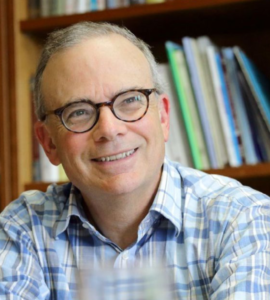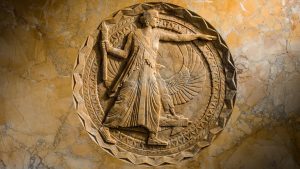ML4Q proudly announces that David DiVincenzo, esteemed member of our cluster, has been elected as a distinguished member of the United States National Academy of Sciences. DiVincenzo’s contributions to the field of quantum computing have earned him this prestigious recognition.
About David DiVincenzo

(c) Forschungszentrum Jülich/Ralf-Uwe Limbach
Widely recognized as one of the pioneers in quantum information research, DiVincenzo is a leading expert in quantum information processing. He is best known for developing the key criteria for building a quantum computer, called the DiVincenzo Criteria, and for co-creating the Loss-DiVincenzo approach to solid-state spin-based qubits.
In 2010, David DiVincenzo became Alexander von Humboldt Professor at RWTH Aachen University’s Institute of Theoretical Quantum Information. He is Director of the Institute of Theoretical Nanoelectronics at Forschungszentrum Jülich & co-founder of the Institute for Quantum Information which is a joint institute of RWTH Aachen and the Forschungszentrum. DiVincenzo earned his PhD from the University of Pennsylvania in 1983 and went on to work as a postdoctoral researcher at Cornell University before joining the research staff at IBM Watson Research Center in New York.
DiVincenzo, a prominent member of ML4Q, has played a pivotal role in shaping the cluster. Until 2022, he served as the coordinator of Focus Area 3 exploring “Decoherence, measurements, and error correction.” In our Publication highlights section, we elaborate on several publications contributed by the DiVincenzo group, including cooperations with theoretical groups from Cologne.
About the National Academy of Sciences
The esteemed National Academy of Sciences (NAS) is a private, non-profit society of distinguished scholars. Signed by President Abraham Lincoln, the NAS is charged with providing independent, objective advice to the nation on matters related to science and technology. Scientists are elected by their peers to membership in the NAS for outstanding contributions to research. The NAS is committed to furthering science in America, and its members are active contributors to the international scientific community.
